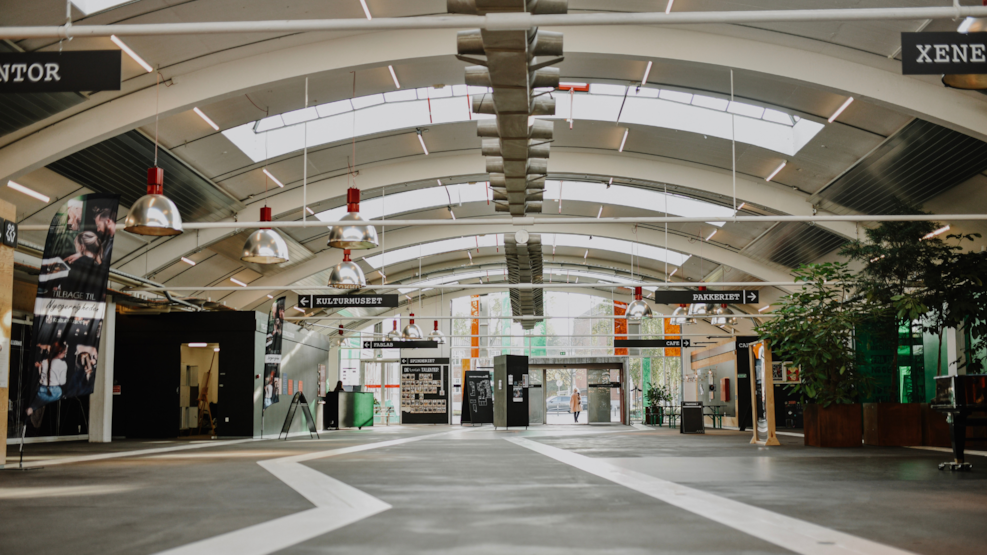
Spinderihallerne
Spinderihallerne (The Spinning Mills) is one of the best preserved examples of Vejle's industrial heritage. Today the mills house a local heritage museum, café and facilities for business and start-ups.
Spinderihallerne is one of the town's few industrial complexes to have survived unchanged. The refurbished building was originally a cotton mill from 1896. For over 100 years, the mill was the backbone of Vejle's historic working-class district, Vestbyen.
Vejle was previously a pioneering town as well as the nation’s undisputed centre of cotton spinning and was known as "Denmark's Manchester". At the time, the cotton industry employed up to 25% of the city's industrial workforce.
The Spinning Mills testifies to the transformation of Vejle from a small provincial town to a thriving industrial city, including today’s experience and knowledge industry where production has been replaced by creativity and innovation.
Entrepreneurship and cultural museum
Today, Spinderihallerne lends its space to a dynamic and creative community of companies working within the multidisciplinary field of design, art and business development. The halls also serve as a home for passionate entrepreneurs, with premises used as workplaces and FabLab, a modern prototyping workshop. Throughout the year, exciting events such as Upcomers Design Market, yoga, music quiz, communal dining, and much more take place.
In the large halls, the Vejle Museums' Culture Museum also resides, with its fantastic stories about Vejle's past. Here, there are both changing and permanent exhibitions about the industrialization in Vejle, the Haraldskær Woman, Vejle's nightlife from 1990 to 2010, and the Iron Age.
On weekdays, (except during the holiday season and public holidays) you can lunch in the café at the Spinning Mills, and use the café as a hub. Here anyone can log on to the wireless network.
The restoration of the Spinning Mills has been carried out by the internationally acclaimed architectural firm Schmidt, Hammer & Lassen Architects and was completed in 2010. In 2015, the complex was expanded with the adjacent Kedelbygningen, which is a centre of technology, design, play and learning.